News
-
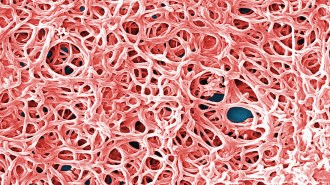 Health & Medicine
Health & MedicineHow to fight Lyme may lie in the biology of its disease-causing bacteria
The unusual molecular makeup of Borrelia burgdorferi, which causes Lyme disease, may hold clues for understanding and treating the tick-borne disease.
-
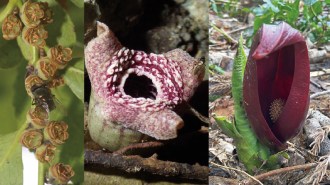 Plants
PlantsPutrid plants can reek of hot rotting flesh with one evolutionary trick
Some stinky plants independently evolved an enzyme to take the same molecule behind our bad breath and turn it into the smell of rotting flesh.
-
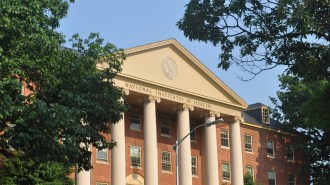 Science & Society
Science & Society$1.8 billion in NIH grant cuts hit minority health research the hardest
News of NIH funding cuts have trickled out in recent months. A new study tallies what’s been terminated.
By Sujata Gupta -
 Health & Medicine
Health & MedicineTeens who want to quit vaping have another medication option
The drug varenicline, paired with counseling and text messaging support, helped teens and young adults abstain from vaping in a clinical trial.
-
 Health & Medicine
Health & MedicineDo cold-water plunges really speed post-workout muscle recovery?
A new study is among the first to look at whether cold or hot soaks help women’s muscles rebound from extreme exercise.
-
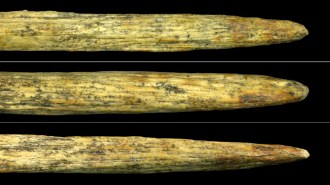 Archaeology
ArchaeologyNeandertals invented bone-tipped spears all on their own
An 80,000-year-old bone point found in Eastern Europe challenges the idea that migrating Homo sapiens gave the technology to Neandertals.
-
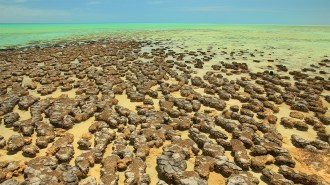 Oceans
OceansBefore altering the air, microbes oxygenated large swaths of the sea
Hundreds of millions of years before oxygen surged in the atmosphere 2.4 billion years ago, swaths of oxygen winked in and out of existence in the ocean.
By Nikk Ogasa -
 Archaeology
ArchaeologyBritish tin might have fueled the rise of some Bronze Age civilizations
Chemical evidence of tin from coastal British sites reaching Bronze Age Mediterranean societies highlights a supply chain dispute.
By Bruce Bower -
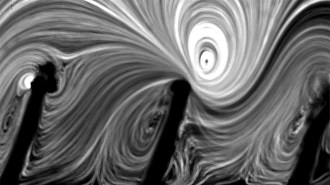 Health & Medicine
Health & MedicineLining medical stents with hairlike fuzz could fend off infections
Implanted tubes that transport bodily fluids can get gross. A lab prototype suggests a new vibration-based way to keep them clean and prevent infection.
-
 Physics
PhysicsPhysicists explain how cheese rosettes form
Rosettes made by scraping Tête de Moine, or “monk’s head,” cheese result from variations in the friction between the blade and the cheese.
-
 Space
SpaceA Soviet spacecraft has returned to Earth
Kosmos 482 launched for Venus in 1972 but never left Earth orbit. The spacecraft finally lost enough energy that it couldn't fight gravity anymore.
-
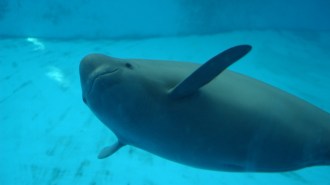 Animals
AnimalsAncient poems document the decline of the Yangtze finless porpoise
The porpoise is critically endangered. Ancient Chinese poems reveal the animal’s range has dropped about 65 percent over the past 1,400 years.